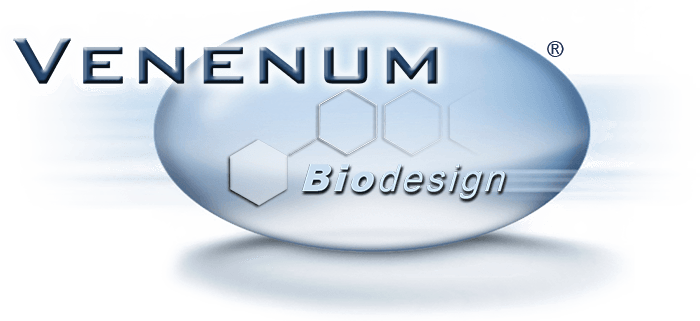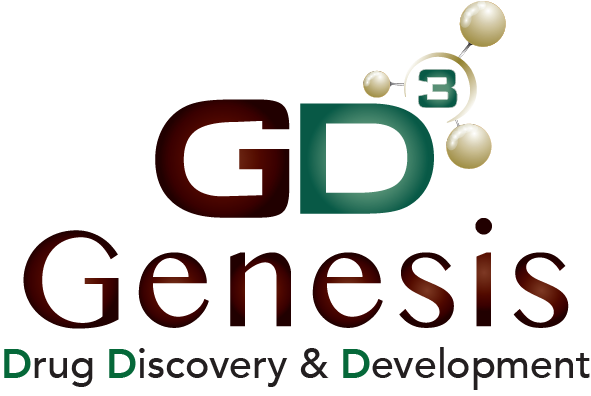Our Programs
STING Agonists
One of our leading immune-oncology programs is focused on STING agonists. STING (STimulator of INterferon Genes) activation can promote the detection of tumor cells by the immune system and potentiate an aggressive and strong anti-tumor response. STING protein is an innate immune activator of type I interferon (IFN) and pro-inflammatory cytokines. STING agonists potentially have the ability to facilitate cancer antigen recognition against a primary tumor, but also promote tumor infiltration by CD8+ T cells for a long-term memory effect. These agonists harness the immune system to kill malignant cells and develop immunological memory against the malignant cells similar to a vaccine-induced memory effect.
VENENUM Biodesign has designed a novel and highly potent series of STING agonists. This series was generated from molecular modeling and structure based-design to contain unique structural features outside the scope of the identified patent landscape. This compound series demonstrates strong and durable antitumor immune responses in multiple established mouse syngeneic tumor models.
MGAT2 Inhibitors
Obesity, stemming from a diet rich in triglycerides, is a known risk factor for the development of Non-Alcoholic Fatty Liver Disease (NAFLD) and Non-Alcoholic SteatoHepatitis (NASH). In the US, NAFLD is estimated to be present in 20-30% of the population and is associated with ~$30 billion per year in healthcare costs. There are currently no marketed therapeutics to treat NAFLD or NASH. This represents an enormous unmet medical need and a significant opportunity. In murine models, loss of intestinal MGAT2 (monoacylglycerol acyltransferase) has been linked to a reduction in dietary fat absorption and NAFLD/NASH pathology.
From a high throughput screen for inhibitors of MGAT2 activity, Venenum has discovered multiple novel chemotypes that have progressed to the lead optimization stage. Our lead series has potent human and mouse MGAT2 activity with good selectivity over DGAT1 and other related acyltransferases. In a mouse Oral Lipid Tolerance Test (OLTT), treatment with compounds from this series results in a statistically significant reduction of plasma triglyceride excursion compared to untreated animals. Long-term NASH studies in mice are underway.


